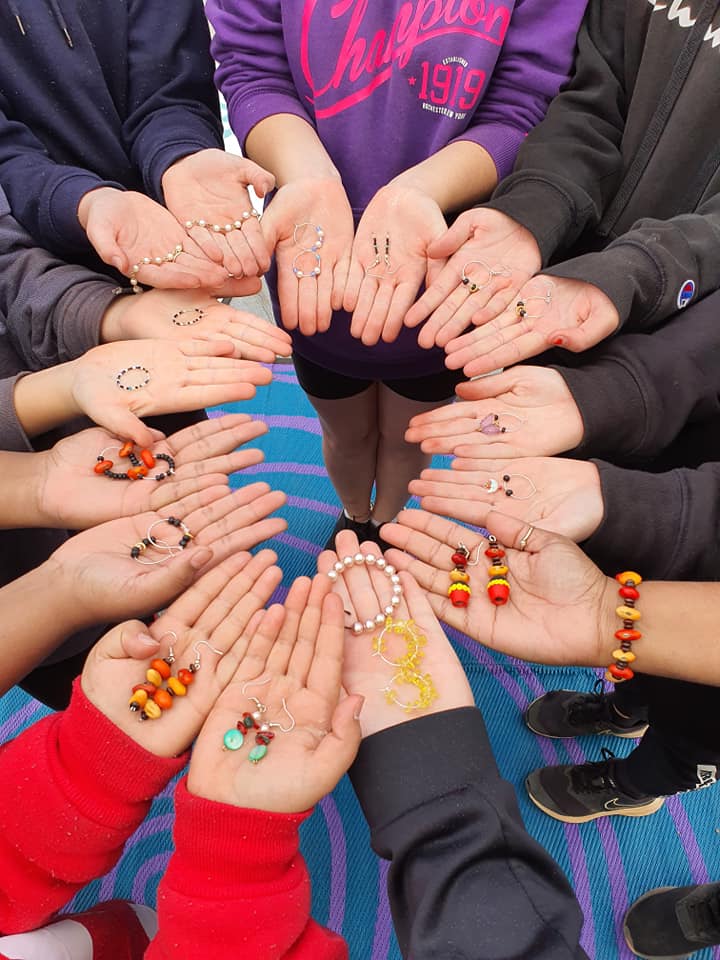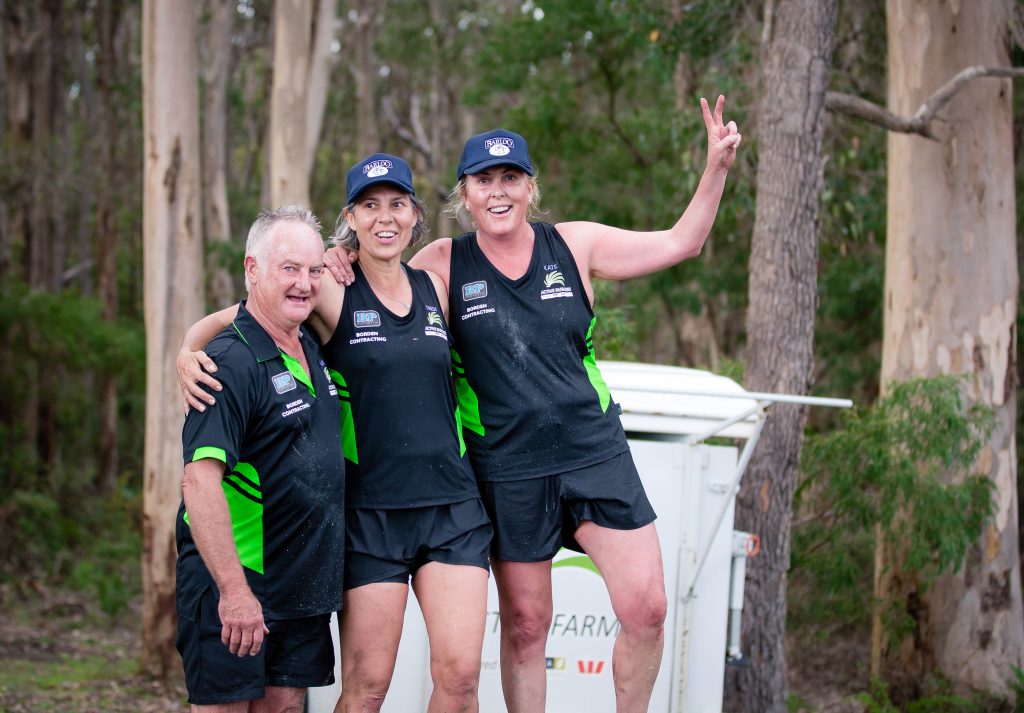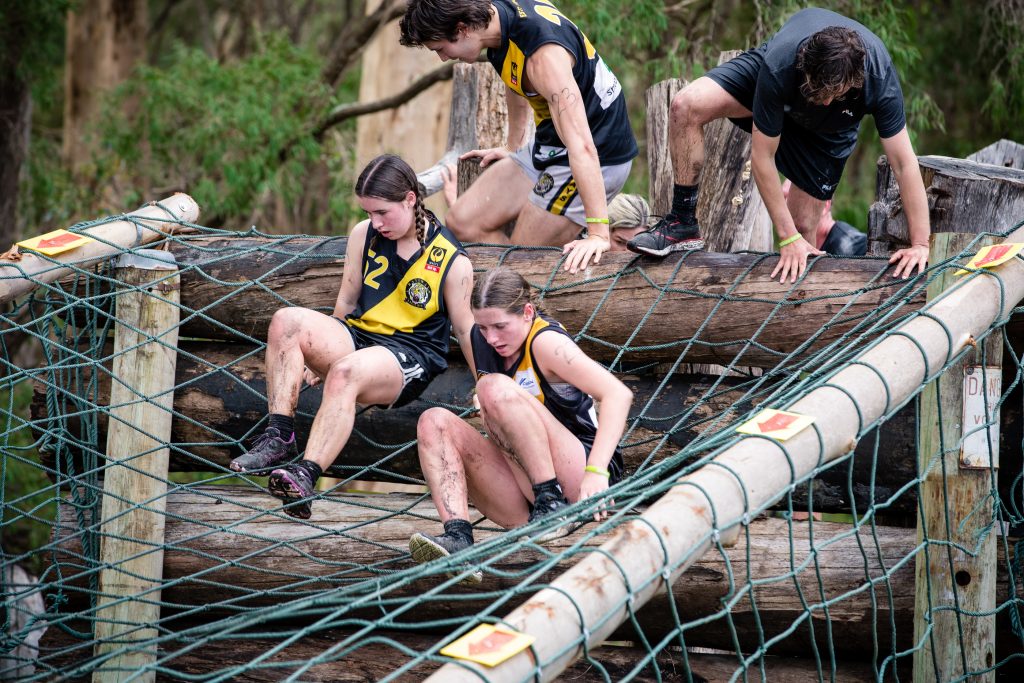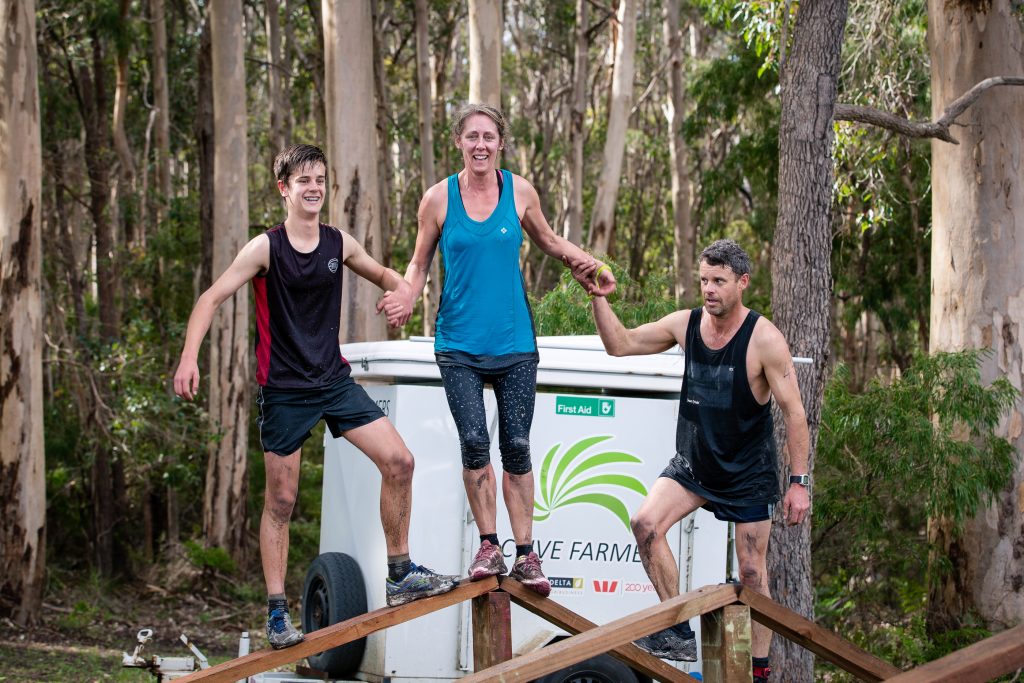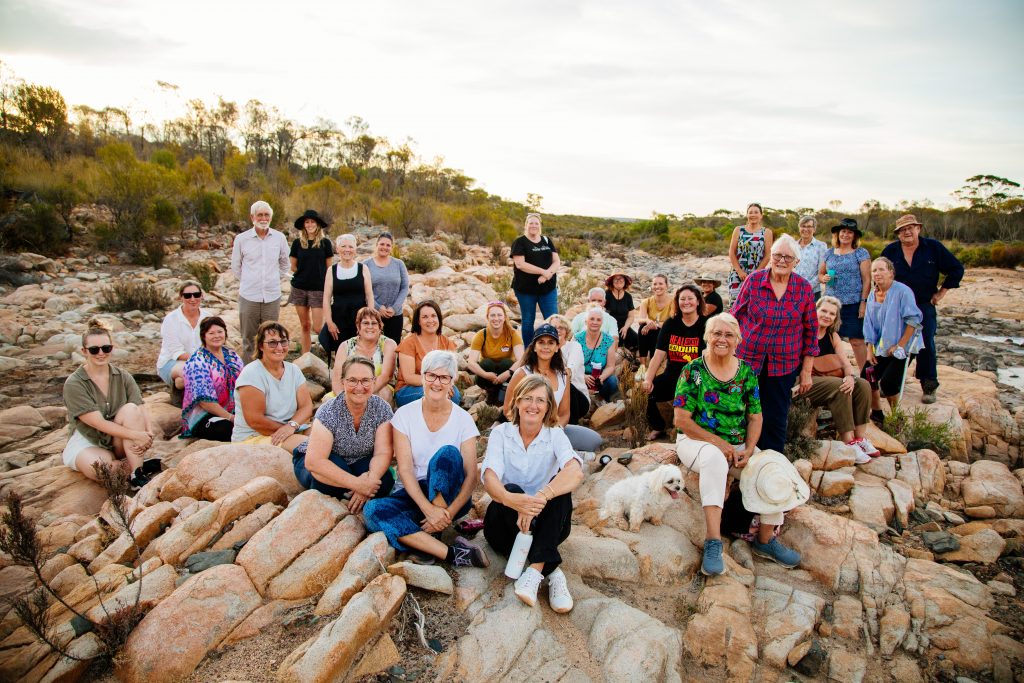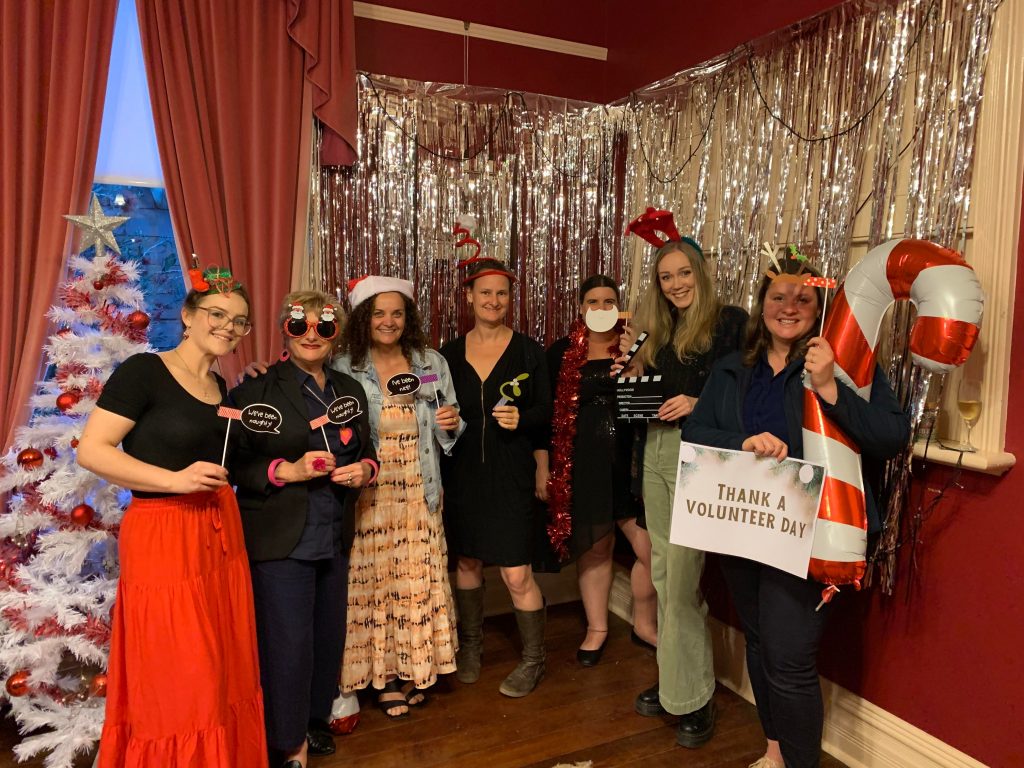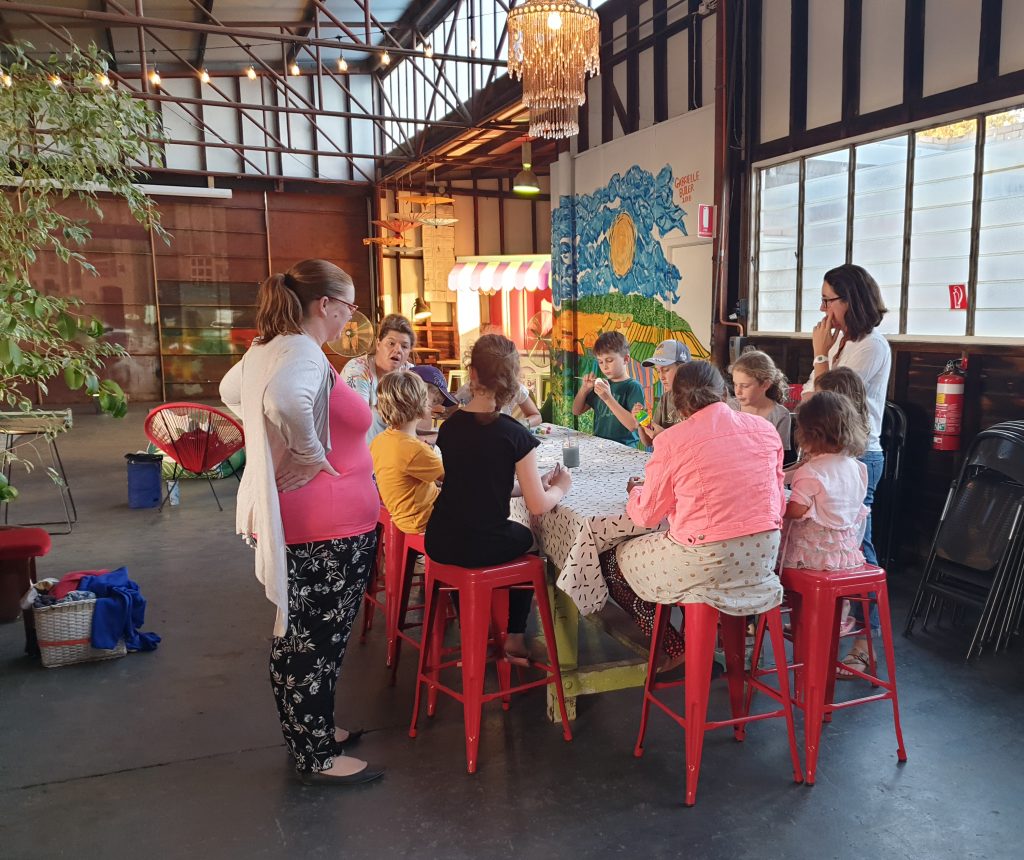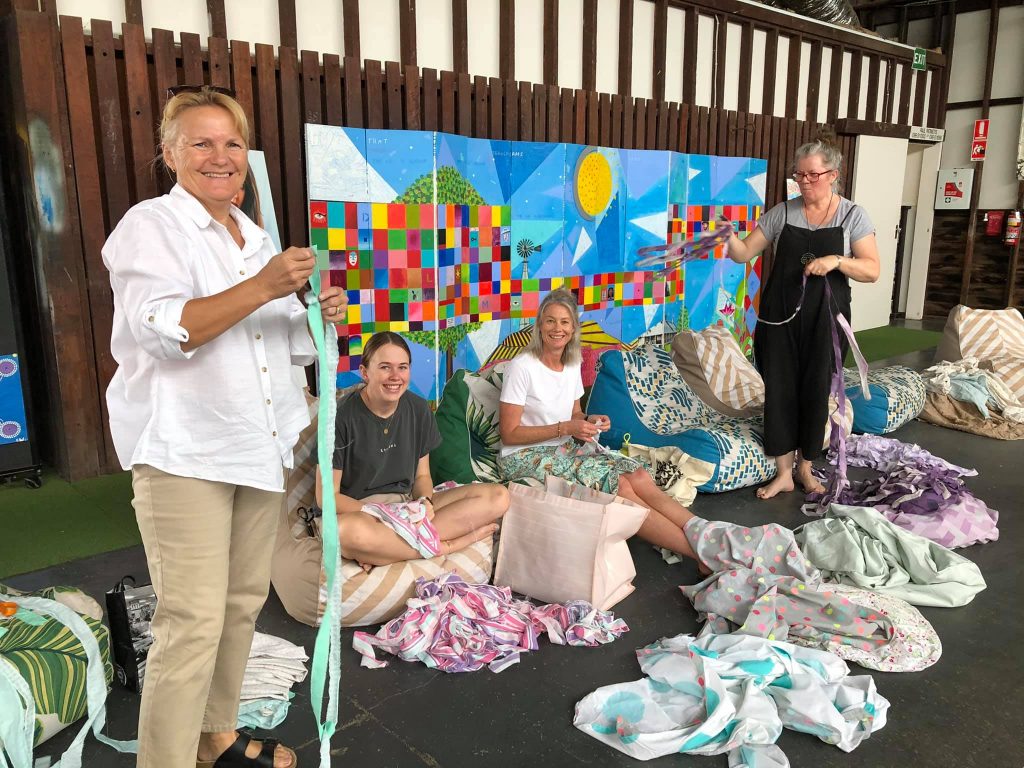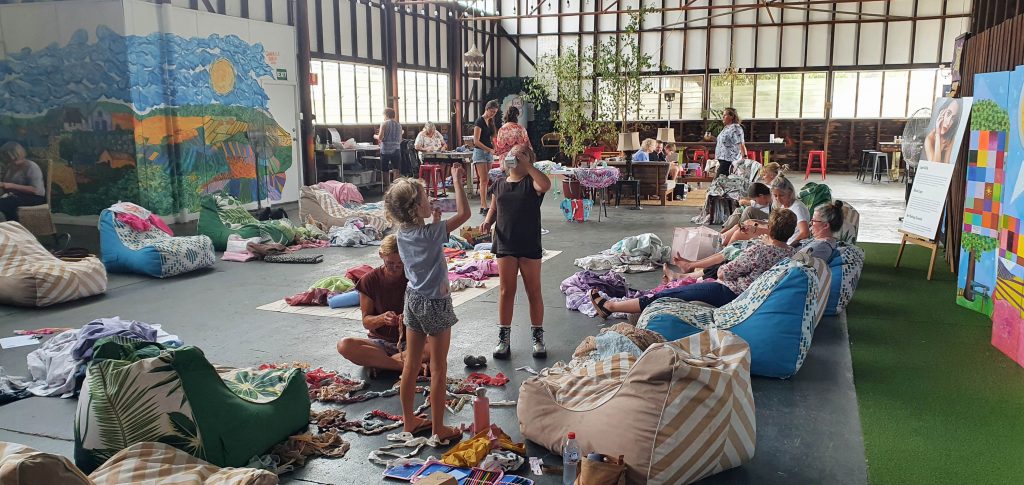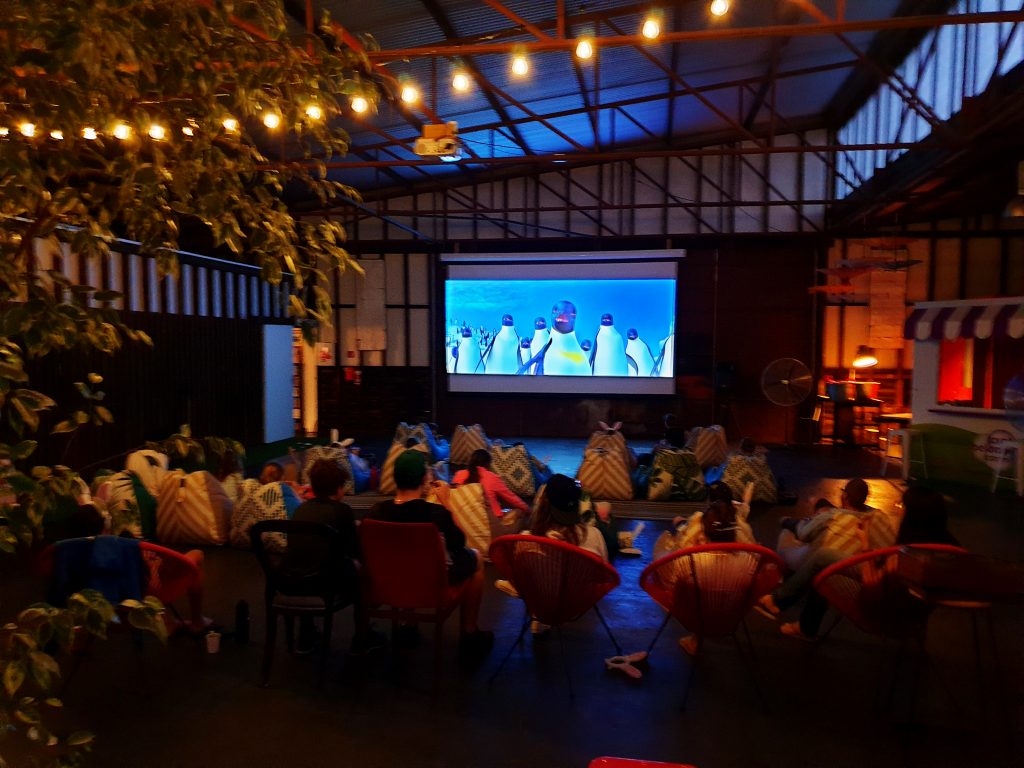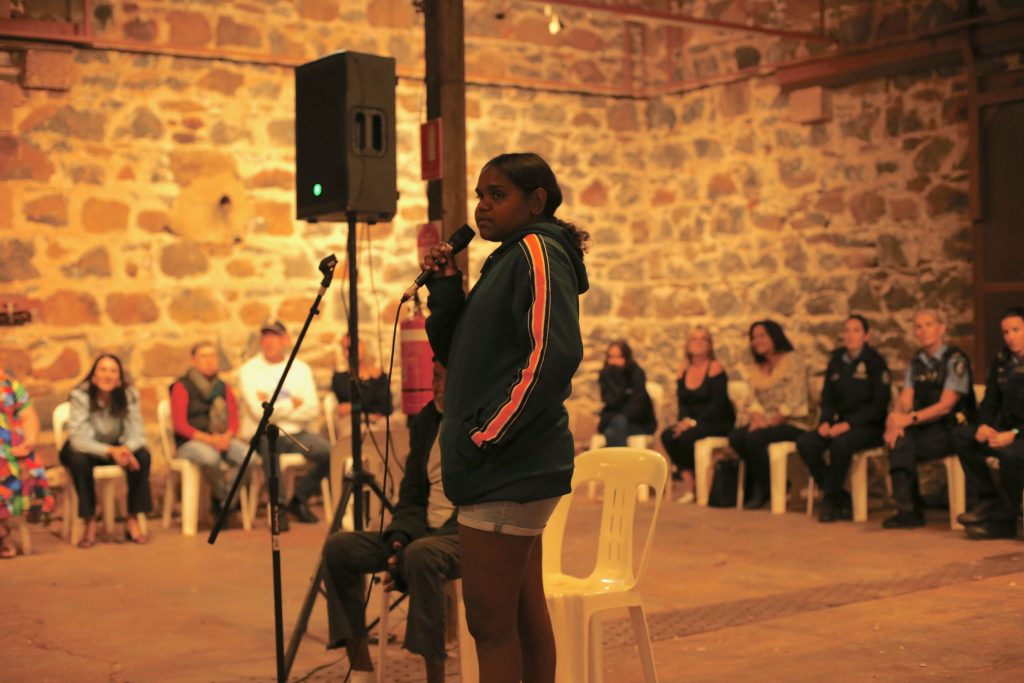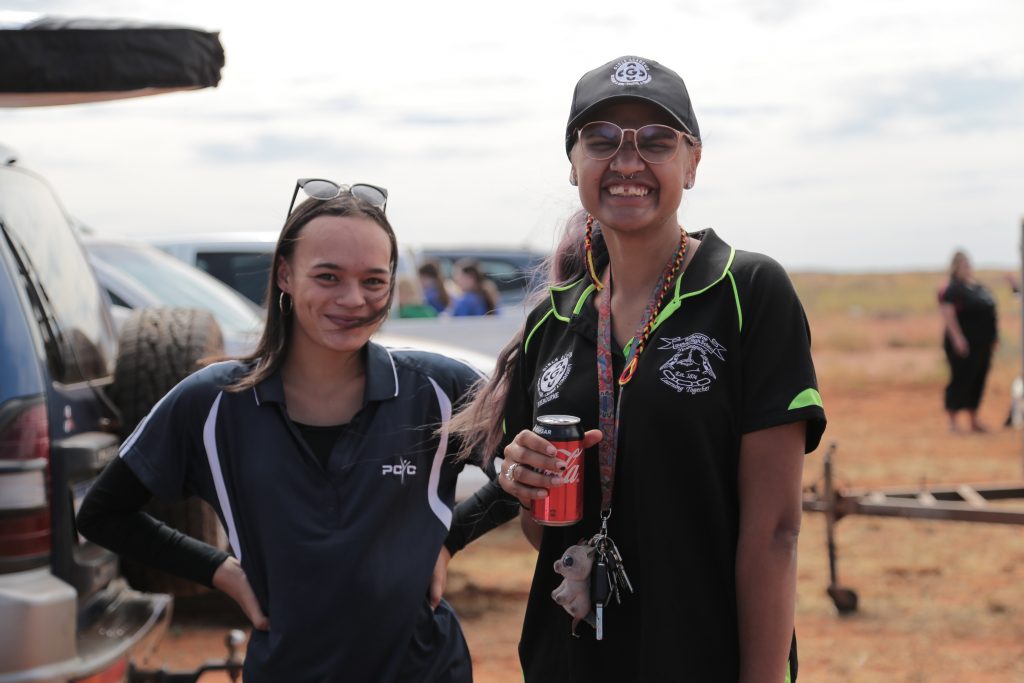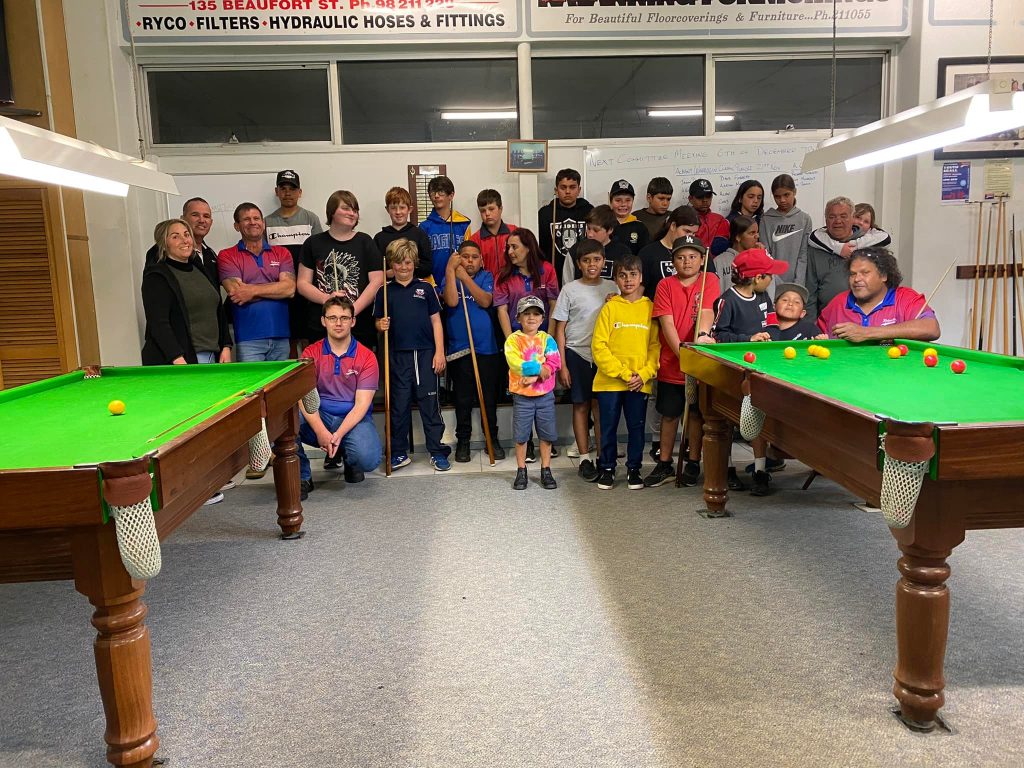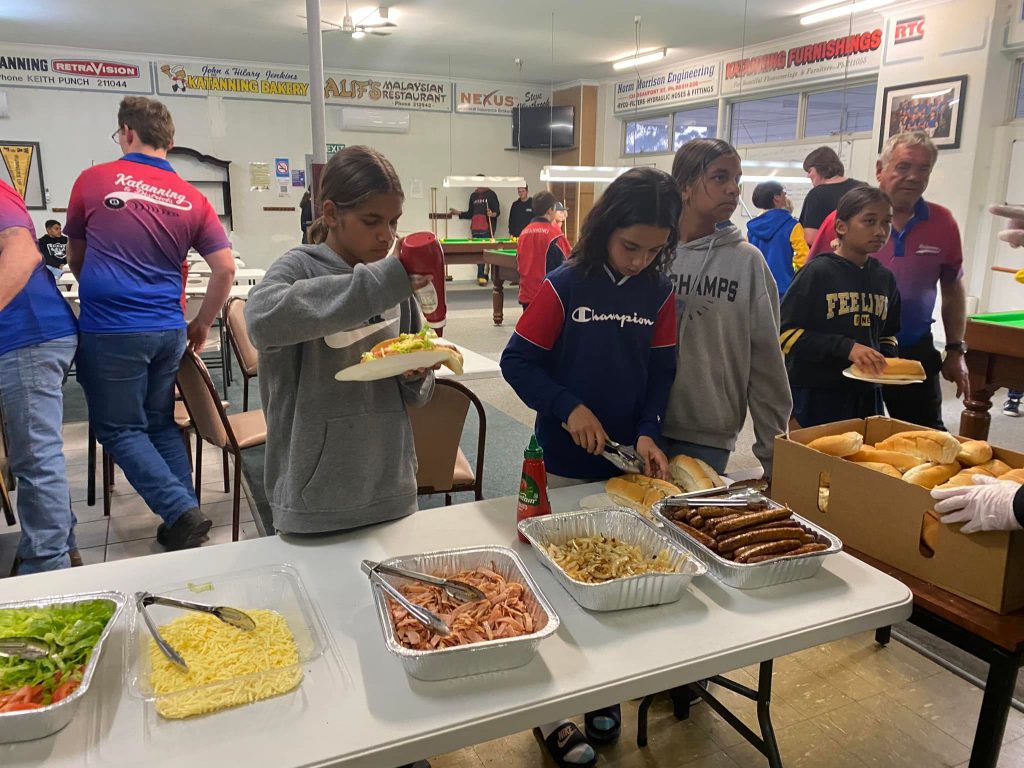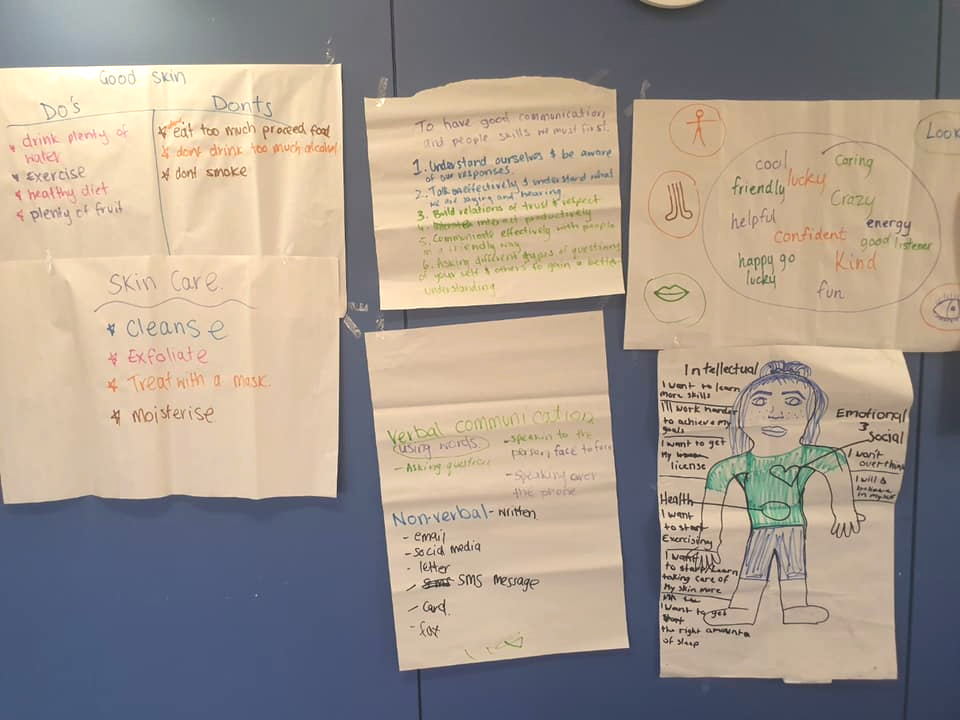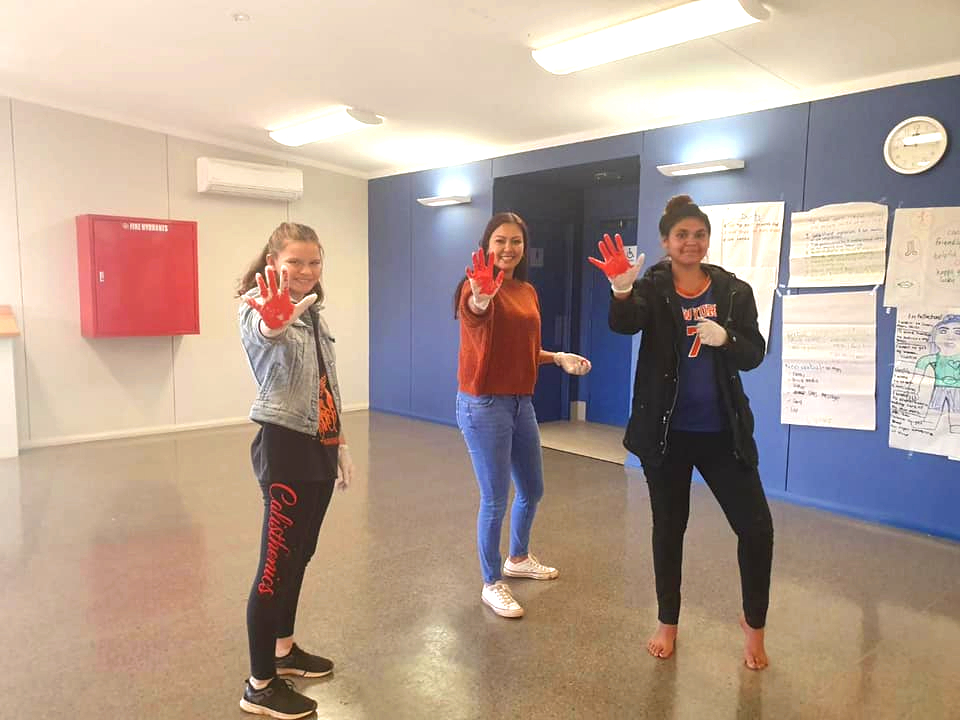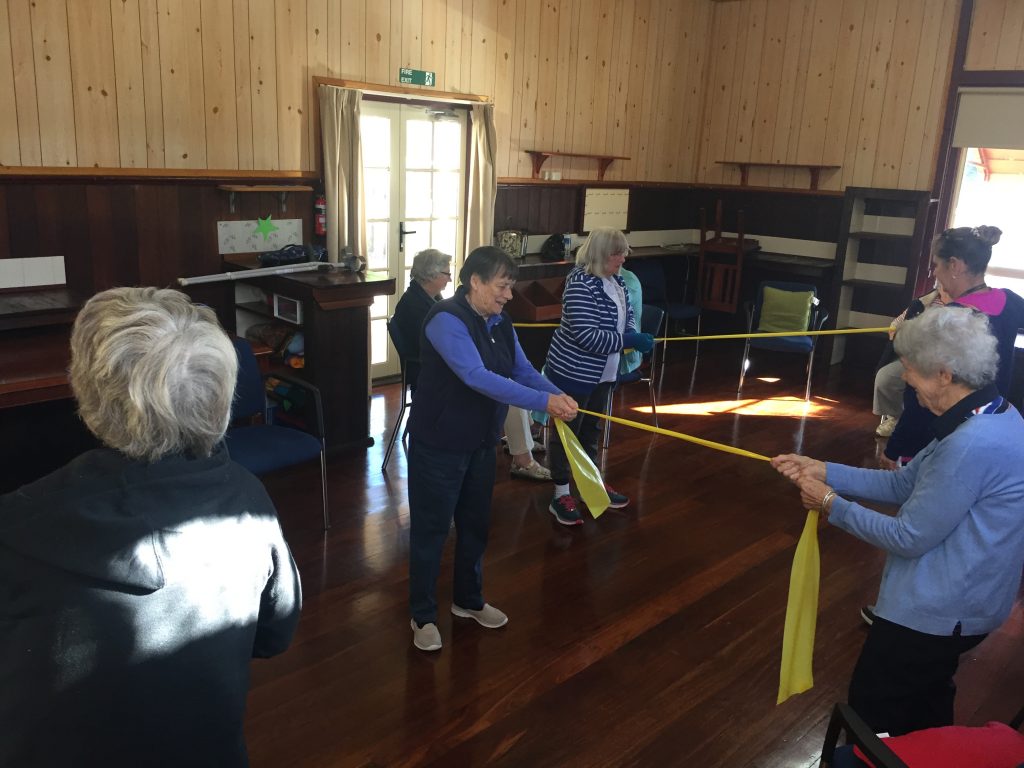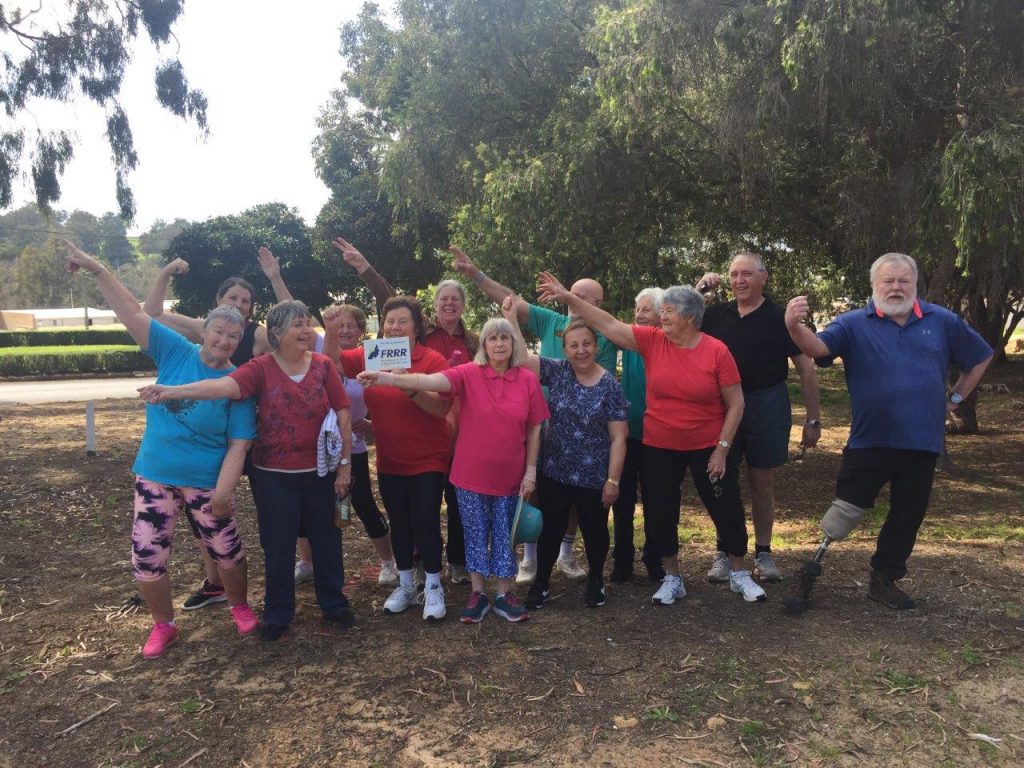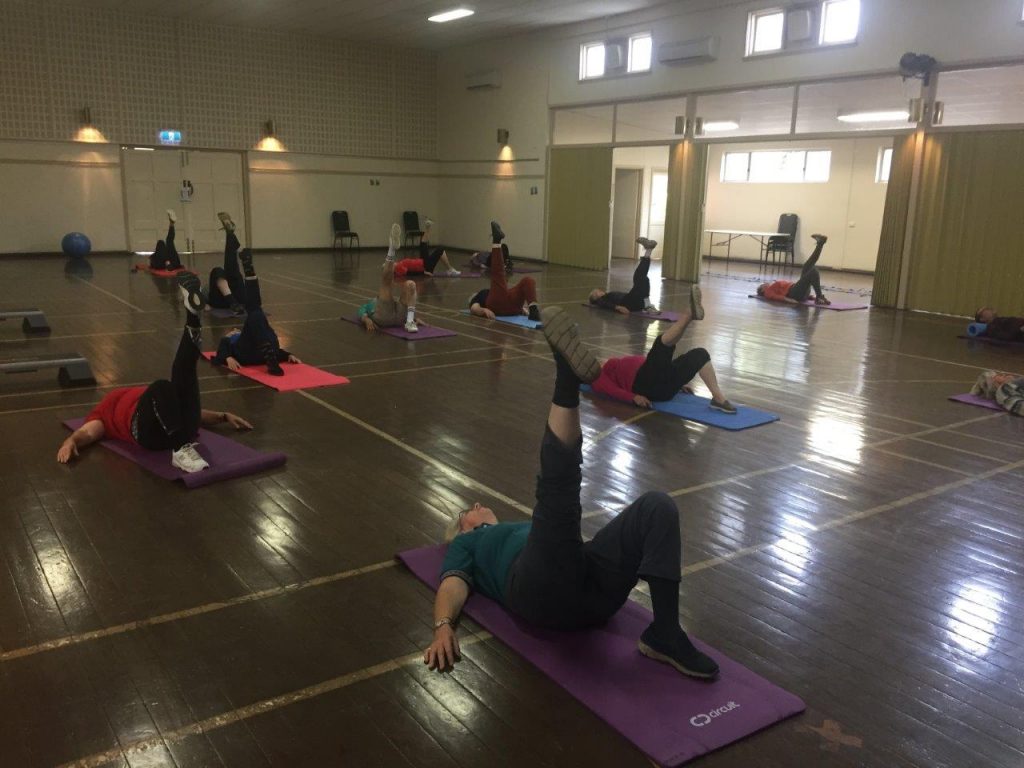Foundation for Rural & Regional Renewal (FRRR)
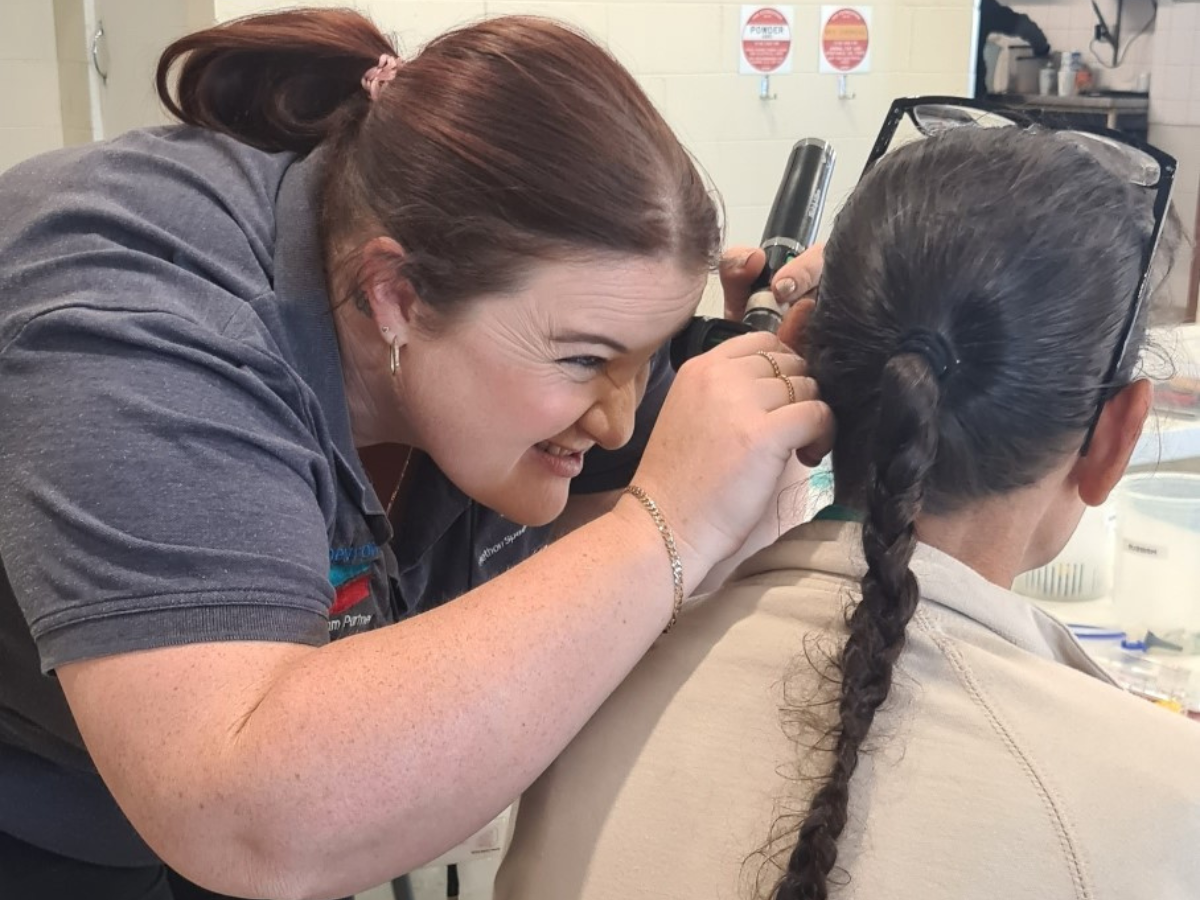
Thanks to a $8,904 SRC grant supported by the Sidney Myer Fund, Telethon Speech & Hearing Inc was able purchase cutting edge screening technology to streamline its early detection and surveillance of hearing loss at early childhood centres and primary schools across the Pilbara, Kimberley and Wheatbelt regions of WA. Many children in these regions are at risk of developing chronic ear health conditions, which impact all facets of their life including social, behavioural and academic performance, if not addressed early.
The HearX apps and four digital devices have enabled screening and clinical hearing tests to be undertaken in a faster, more reliable way. The software supersedes traditional devices, so that ear screenings can be conducted with a tablet. This was particularly important for Telethon when its regular ear health clinics had to be cancelled due to COVID and a major flood in Onslow. Fortunately, Telethon’s locally based team was able to upskill early years educators, teachers and nurses to undertake the screenings and Telethon’s audiologists could then analyse data and generate reports remotely.
“We have since integrated a tele-health component into our audiology service offerings, allowing our locally based teams to screen children and liaise with our Perth audiology team in real time. This has allowed us to diversify our service delivery modalities, ensuring more frequent hearing supports than would otherwise be on offer pre-COVID.”
The Fremantle Foundation was established in 2010, and seeks to create a thriving community through local giving and to address critical community needs by providing inspiring ways for people to give. They partnered with FRRR in 2020 through a Community Foundation Account, allowing them to support a wider range of community organisations conducting charitable activities in rural and regional WA, particularly those without their own DGR status – which is the majority of community organisations in regional and remote areas.
In FY23, for the second year in a row, the Foundation distributed grants exceeding $1 million across 62 grants, creating impact in the local Fremantle community, the broader metropolitan area, regional and remote WA, as well as in other parts of Australia.
While most of their donors focus on metropolitan areas, the FRRR Community Foundation Account specifically allows the Fremantle Foundation to support more projects in regional communities.
For example, the Northhampton community, located around five hours north of Fremantle, was badly affected by Cyclone Seroja in April 2021. A group of ex and current AFL footballers, all from around Northampton, set up a fund with Fremantle Foundation to support rebuilding in the township and the surrounding region.
Two projects that have been completed to date include the refurbishment of the Olgilvie Hall and construction of a remembrance garden at St Mary’s School. The garden includes new paving, bench seating and a selection of plants, including the much-loved rose garden. In addition, signage has been installed for visitors to gather and learn about the parish and impact of Cyclone Seroja.
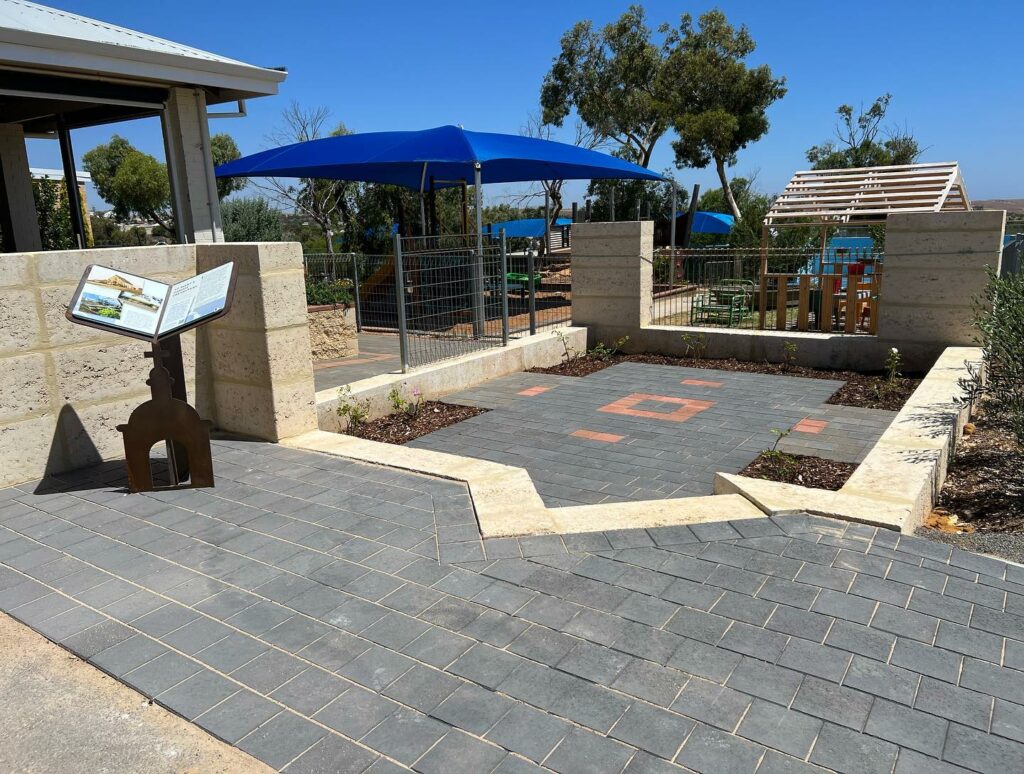
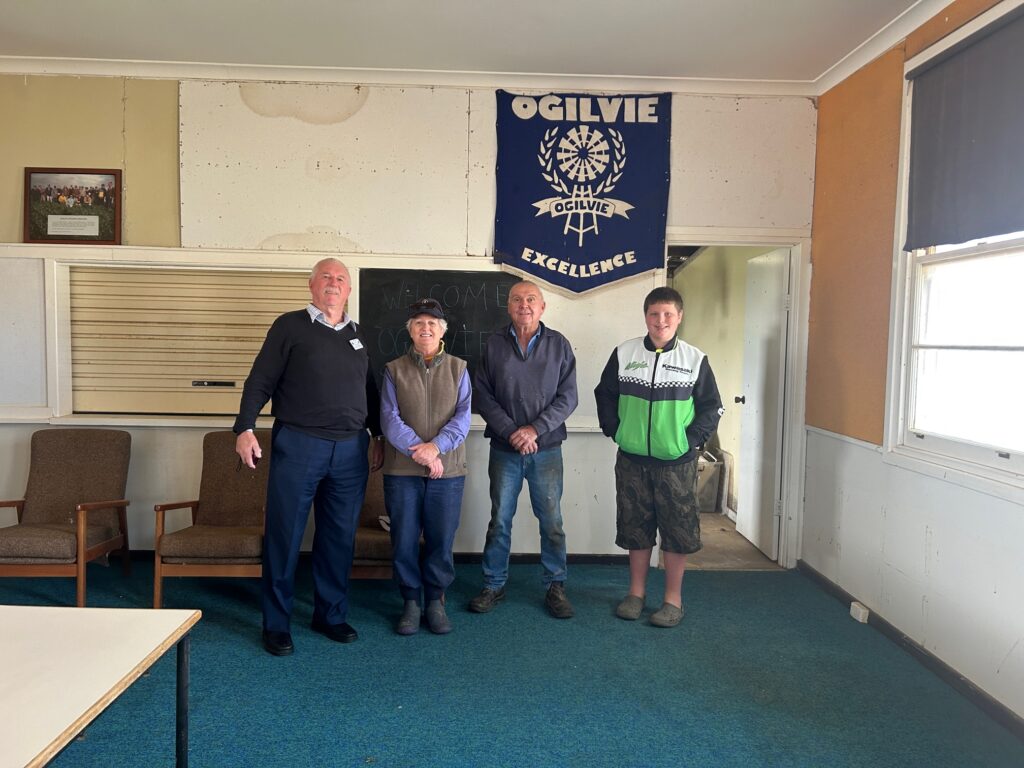
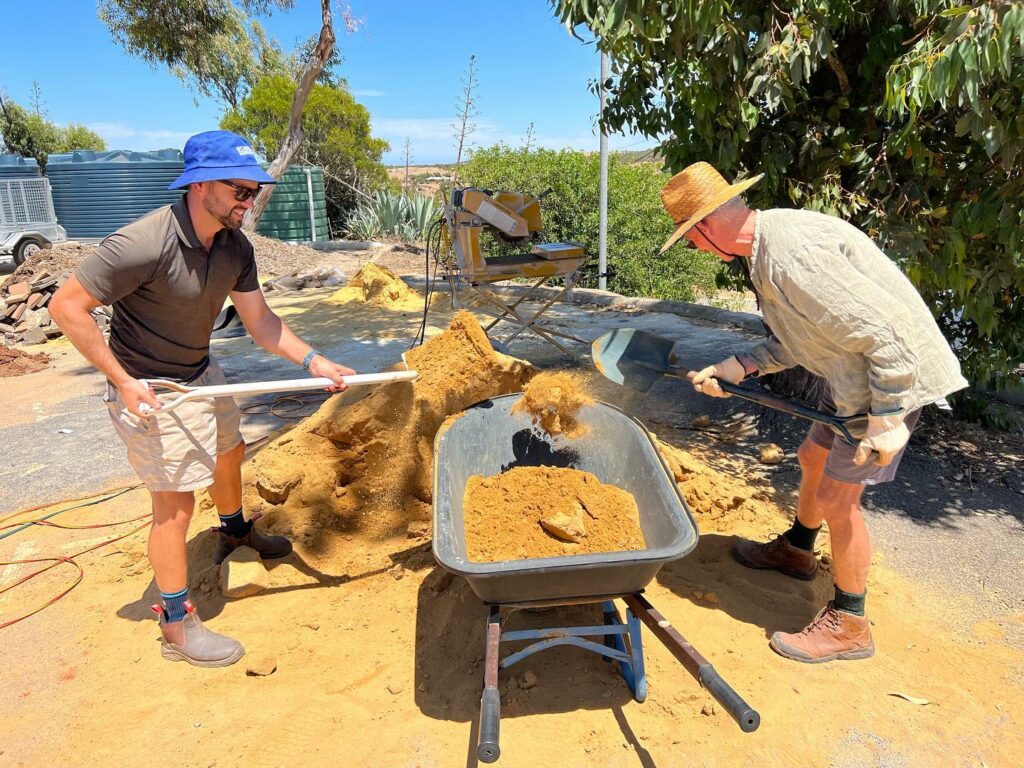
The Fremantle Foundation is also using their FRRR Community Foundation Account to ensure donated funds support the launch of the Peel Community Fund.The Fund was established in 2019 by members of the Peel community, with the aim of creating their own Community Foundation in the region. Thanks to their FRRR Account, Fremantle Foundation was able to award them a grant to support the development of critical infrastructure, including a website, communication and marketing plan, marketing materials, operational structure, committee governance and membership / giving structures.
In another example of their ability to inspire local giving, The Esperance Ag Fund was established in 2021 by the local agricultural sector in partnership with Fremantle Foundation, with the sole purpose of making a difference within the Esperance community. Collectively, the farming community, which is about 700 km from Fremantle, provides support to the wider Esperance region by funding projects that make a positive impact. They’ve recently awarded a grant to the Recherche Aged Welfare Committee for the installation of a reticulation system at the Alchera Aged Care Housing property.
Pauline Eves from Fremantle Foundation said they are most grateful for the assistance provided by FRRR to enable grants like these to happen.
According to Beyond Blue, one in seven Australians will experience depression in their lifetime. For people living in remote, rural and regional areas, access to adequate physical and mental health care can be tricky. In fact, getting people to talk about mental health issues can be just as hard as finding the appropriate support.
Organisations like Active Farmers are working hard to breakdown the stigma surrounding mental health and raise awareness and understanding of the benefits of regular exercise and healthy eating. One way they do this is by hosting events like the Active Farmers Games.
In 2019, the inaugural Active Farmers event was held in NSW, and again the following year. Both events were a total success with people travelling from all over the country to attend. Post-event feedback strongly endorsed running it again, but suggested it should head to Western Australia.
The small town of Torbay, located in the Great Southern region, was selected to host the Games. The region is dominated by farmland, which produces livestock, dairy, wool and grows crops. Known as one of the most productive cereal grain and pastoral areas of the state, they have also been severely impacted by drought, bushfires and of course COVID-19. On top of this, the population of the Great Southern area of WA is predominantly aged over 50 years, with the proportion of adults aged over 65 years projected to increase by 54% over the next five years. For people in this age group, physical health concerns can often be managed by regular physical activity and exercise. This demographic also has a large population that lives in regional Australia, where they may lack access to health and wellness services due to remoteness.
The one-day event involved traversing a 3.5km farm-inspired obstacle course (think hay bales, tyre stacking and fence climbing!). The aim was to raise awareness of the importance of physical and mental health and to promote connectedness in the bush. The course was designed to symbolise real life obstacles and how we are able to better overcome these obstacles if we have a team of people around us.
In total, there were 30 obstacles that 150 participants had a go at. There were three teams that consisted of men, women and children. The course was designed to accommodate everyone with the youngest participant being six years old and the oldest participant in their 70s. The event was also a tremendous show of community participation with 40 volunteers to help things run smoothly and another 90 spectators who came to cheer the participants along.
Using a $6,340 Strengthening Rural Communities (SRC) grant, funded by FRRR, Active Farmers were able to host a successful event that fostered a strong sense of connection and joy within the community and surrounding areas.
They were also able to raise much needed funds to establish the Active Farmers group fitness classes in up to six additional locations in WA. Check out this fantastic video that showcases the day’s activities.
Ravensthorpe Community Resource Centre (CRC) Inc is integral in coordinating and managing community and business events throughout the Ravensthorpe Shire in Western Australia. They have expanded to the Fitzgerald Business Network, which is focused on connecting and skill building businesses throughout the district including social development activities such as Study with a Buddy After School Program; Seniors Computer Club and major annual events such as Wellness Weekender and Galaxy Country Carnival and Street Parade.
A $5,000 Nutrien Ag Solution Community Grant in 2021 provided the opportunity to improve community organisations’ employee and volunteer management. The grant funded bringing in a local human resources consultant to develop tailored solutions for paid and unpaid personnel in local community groups, run workshops on volunteer management software systems and set up a central register for formal volunteer documents. Additionally, a project manager was paid to plan and co-ordinate the work.
Volunteers are the lifeblood of many communities. However, this is a great example of how funding can temporarily increase organisational capacity to complete work effectively. In this case the original plan of completing one group training was not possible so several sessions had to be coordinated to ensure all local community groups could participate.
There have been some great outcomes:
- Position descriptions and employment contracts were developed for seven community groups or volunteer programs, including the Community Spirit Committee and Ravensthorpe Regional Arts Council.
- A volunteer certificate register was developed and promoted. It has benefited three groups (and will continue to benefit others) who have volunteers that require Working With Children Checks, Responsible Service of Alcohol Certificates and that want to store these certificates in a central location.
- Two workshops on cloud-based volunteer management options were delivered.
Chairperson Tracy Ebert was delighted with the project outcomes. “We have developed a suite of tailored resources for some of our most important local community groups. The volunteers on these groups now feel much more confident to engage volunteers and paid staff knowing that they are meeting all legal requirements. The volunteers have enjoyed having very clear expectations and have remained engaged. There are now at least three other groups in the community using the volunteer software system presented to manage volunteers and the reporting to committees and management of tasks has been vastly improved in these instances.
“And that’s not all,” she continued. “Excitingly, we have been able to provide these resources to a region-wide project – South Coast Enviro Experiences – with similar objectives (as the challenges with managing volunteers are universal), which means they don’t have to reinvent the wheel and can direct their resources into other essential elements of the project which we will benefit from.”
There are learnings in all projects and the Ravensthorpe CRC are conscious of the security of the data they hold on behalf of their volunteers, and have taken all measures for its secure keeping.
Overall, 60 people from Ravensthorpe community organisations directly benefited from the training and presentations, and there is the ongoing benefit to human resource documentation and administration skills to support current and future employees and volunteers in Ravensthorpe.
On Yued, Amangu, Badymia and Widi Country
Carnamah is a town and farming community 300 km north of Perth in WA. Located on Carnamah’s main street, The Exchange is a repurposed heritage building that has been transformed into a multipurpose community and visitor centre. Run by North Midlands Project Inc, it is a not-for-profit arts, culture, history and heritage organisation working towards happy, healthy communities and vibrant, connected towns. They deliver activities across the North Midlands – the seven regional local government areas of Carnamah, Coorow, Mingenew, Morawa, Perenjori and Three Springs.
The Exchange is used on a weekly basis as the home of a local painting group, writing group, youth coding club and the regional Five Gums Scout Group. The space is also utilised for the delivery of many other community workshops and events facilitated by North Midlands Project – all of which are provided to the community free of charge to ensure they are accessible.
North Midlands Project received broad community feedback that people loved The Exchange, especially its welcoming vibe, but that it got too hot in the back section of the building during the warmer months. On occasion, Carnamah is the hottest place in WA, with summer temperatures averaging 36 degrees. This heat renders the space unusable for the best part of four months in the year.
The management committee received a $10,000 Strengthening Rural Communities grant, funded by Australia Post, to contribute to the cost of installing two large air conditioning units in the back section of The Exchange. This has transformed the space into one that is now utilised by the community for workshops, events and other activities right throughout the year.
David Bright, Executive Director of North Midlands Project, said that they are very happy with the outcome.
“Our many, many thanks to FRRR and Australia Post. The grant is enormously appreciated and will have an ongoing impact to our broader community.”
For more inspiring stories like this, head to our FY 2021/22 Annual Review.
On Ngarluma Country
Roebourne is a town in the Pilbara region of WA with a largely Aboriginal population. Police have observed a real gap in meaningful engagement with the youth of this community and a lack of opportunities to build their skills, confidence and positive decision making.
Big hART is an organisation that uses art as a catalyst for change. Over the years, Big hART has demonstrated its ability to engage and work strongly with young people and across different levels of community, with strong outcomes as a result. Their grassroots style of engagement, working directly with young people, has a huge impact on the social and community issues that face Roebourne as an Aboriginal community. The outcomes of the many programs, workshops and high production value events that have been created in partnership with Big hART have been profoundly life changing for many young people in the community.
Young people in the Pilbara have created a future focused, ground breaking digital education resource that celebrates living culture and supports teachers with an energetic mode of online learning. In 2020, Big hART received a $10,000 grant from the Westpac Foundation Community Grants program to train and create paid employment for four young adults in the Pilbara to deliver this Indigenous education resource live to classrooms nationally.
Known as the NEO-Learning project, Big hART created tailored training and professional development opportunities for the four trainees, who were individually mentored with a view to longer term employment, to deliver the NEO-Learning resource to schools nationally. The traineeships offered tangible career paths giving them strong digital skillsets and practical industry experience that included digital drawing and music delivery skill building, virtual education delivery, media and communications, and presenting and public speaking. These activities and tasks were mentored by professional producers and creative industry practitioners, through a task focused workshop program.
The outcomes from the project exceeded expectations, with incredible results for some of the trainees, one of whom was Simara, a young Aboriginal woman from Roebourne. She was part of the digital training program, and said that during the program, she grew in confidence and felt excited for her future and career path.
Sam Hawker is the National Producer for Big hART. She said that while creating peer to peer educational content, Simara displayed an excellent eye for framing and observation.
“We have been able to foster her passion for photography over the last 12 months, providing opportunity for Simara to build technical skills and refine her creative practice. To amplify her achievements, we delivered professional development workshops, leading to her art being selected at the prestigious Revealed Exhibition hosted by Fremantle Arts Centre in Perth. Big hART supported Simara throughout this process, from initial conversations with Fremantle Arts Centre to the development of an artist statement, workshops on licensing, contracts and payments. Over the course of the Exhibition, all of Simara’s artworks sold, including one being purchased by the WA State Government for display in Dumas House in Perth.
“As Simara’s confidence in photography continues to grow, she has become a very important role model and mentor for her peers and community.”
Simara also completed media training under the mentorship of Big hART’s Media Manager and implemented this training in conducting interviews with her community. Big hART also helped Simara to obtain her Driver’s License, an essential qualification for employment in the region.
“Being employed as a trainee with Big hART was a great experience for me, as I gained a lot from supporting children and being a mentor and leader for them… this work helped me learn my identity and aspirations. It has made me look for other challenges and opportunities in my life,” Simara said.
For more inspiring stories like this, head to our FY 2021/22 Annual Review.
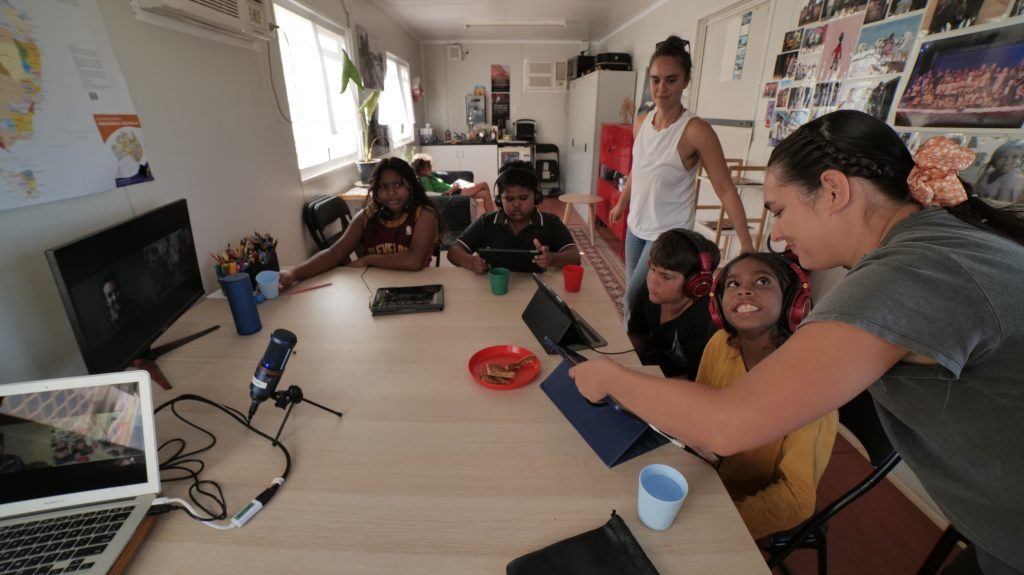
The small regional town of Katanning, in the ‘heart’ of the Great Southern agricultural region, 287 kilometres south-east of Perth in WA, has a shire population of just 4,200 people. While the area is essentially known for agriculture, the town is a regional centre that offers a range of government, health and education services. The Katanning community also prides itself on its multicultural diversity.
This small community was impacted by a bushfire in February 2020, with rebuilding efforts hampered by lockdowns soon after. The community identified that it needed to find ways to engage their younger residents and keep them connected and supported.
The Katanning and Districts Pool Association Incorporated partnered with the Katanning Hub Community Resource Centre (CRC) and the Shire of Katanning to run a Youth program, inviting young people on a Friday night to come to their pool hall to socialise, learn new skills and share a meal. The program has been an overwhelming success with 35-40 young people attending each week.
The hall opened in the late 80s and did not include any kitchen facilities. Requests to use the hall from other community groups had been slowly increasing, as it is one of only a few indoor spaces available in Katanning. Providing catering facilities would make the venue a more suitable location to support these additional groups and their events. With the changing nature of the activities held at the hall, it was time for a refresh. To create a more usable space for community groups to meet, it was decided to add a kitchen area to better support the Youth program in preparing and serving these meals.
Other groups that use the hall were also supportive, including the local men’s group who expressed support for a kitchenette to make a cuppa and make their own events more welcoming for its members.
Thanks to a $10,000 Strengthening Rural Communities grant, funded by IKEA Australia, the Katanning and Districts Pool Association was able to revamp the ageing pool hall and add a meal preparation and serving area.
Local volunteers provided amazing support for the project, contributing more than 80 hours of labour to the renovations and 20 hours to fundraising each month, ensuring the project’s success.
Since finalising the renovation works, the association’s membership has increased, volunteers have been inspired to become more active and the use of the hall by other community groups has expanded. With the improved facilities making the hall more welcoming, friendly and a safe space for people of all ages, the Katanning community is feeling more connected with access to a space tailored to enjoy each other’s company.
The Katanning Police now drop by during the Youth program and challenge the young people to a game, further strengthening these important relationships. Badgebup Aboriginal cooperation is interested in partnering to deliver the Youth program into the future and the Katanning community are proud of what has been achieved, voicing it regularly in person and via social media.
Acknowledging the Wongutha people
Goldfields Girl is about leadership, confidence and building aspirational behaviours. Much more than a pageant, it’s a program that involves personal development, work readiness and community engagement activities for young Indigenous women between the ages of 16 and 25 from the Goldfields region, in south eastern corner of Western Australia. It’s based on the successful Kimberley Girl program, and has been operating since 2017.
Goolarri Media Enterprises (the operational arm of Broome Aboriginal Media Association Aboriginal Corporation) is behind the program, which is part of the overarching Young Women’s Pathways Program, helping young Indigenous women to realise their self-worth, gain confidence to dream big and to build goal setting behaviours.
In 2020, Goolarri’s aim for the program was to engage and participate up to 10 young women from Leonora in the program and workshops. Goldfields Girl is a contemporary cultural activity, and in the remote town of Leonora, there is nothing else like it for Indigenous women at this age and stage of life. The work readiness training and leadership development it provides can be transformational, providing a pathway for successfully navigating transition from school to employment. A significant 43.7% of the Pathways Program participants from 2004 to 2015 were employed, compared to 29.8% employment rate across Indigenous women in all of Australia, in the same age range (and this number is known to be much lower in remote areas.)
With funding from the Kapikarnpi Community Fund, FRRR supported the inaugural Goldfields Girl program in 2017 with a $5,000 grant to the Tjupan Ngalia Land Council Aboriginal Corporation. For two years, activities were held in Leonora and Kalgoorlie. In 2019, there were fewer Leonora participants, and so they were brought to Kalgoorlie for the workshops with their travel, accommodation and meal costs covered. But Leonora is a priority site for the program, and Goollarri wanted to support young women from the town, so they didn’t feel isolated because they were many kilometers from their home and Country.
Goolarri sought funds from the Strengthening Rural Communities program to run a series of 10 smaller, non-accredited workshops based in Leonora in the two weeks prior to Goldfields Girl 2020, to keep the young women engaged as much as possible. They were successful and started planning.
With the programs initially locked in for March 2020 delivery, everything fell apart when the country went into lockdown. Suddenly the risk of these young women feeling isolated became even greater. But the organisation was committed to finding a way forward.
Unsure how to proceed and unable to access the Leonora community, Goolarri got the Broome and Kalgoorlie-Leonora teams together on Zoom to determine a way forward. They agreed to commence the program online by filming fun videos to engage the girls in the accredited training. With a small window in which to keep participants engaged, while not ideal, the plan was better than nothing. So, they developed online modules, videos, adapted content and updated COVID plans as the environment changed.
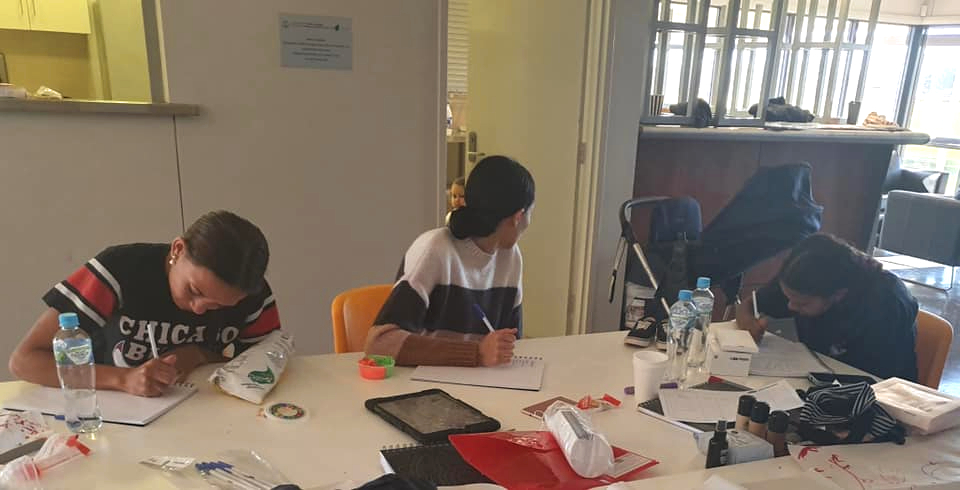
In the final report, the organisation wrote: “We did everything in our power to ensure this project went ahead, to the point where our organisation invested heavily in developing accredited training materials and training videos for the girls, so they did not think we had just walked away and left them.”
“None of it was easy but we did it for the young women.”
Past Leonora participants were trained in the delivery and support of the materials and this was a wonderful outcome that has enabled additional skill sharing for other young women in the community.
“We know from their feedback that these young women gained so much out of this and enabling them through trust in on the ground delivery gave them additional ownership for future activities such as this.”
While they didn’t achieve all the results they had hoped for with this adapted delivery model, they hope that we can make a bigger impact in future years delivering the full program in person.
“We know we touched the lives of those girls who did participate and hope to keep them engaged for future delivery.”
In Boyup Brook, WA, the Community Resource Centre wanted to encourage older locals to keep fit and healthy. Despite the large numbers in the area (49% of community members are over the age of 50) there was no exercise group locally catering to the older age bracket, who are at risk from a sedentary lifestyle which affects their health and puts subsequent pressure on local health services.
With four staff, 48 members and a committee of eight, the Boyup Brook Community Resource Centre (BBCRC) already plays a big part in the health and wellbeing of the community, hosting a visiting chiropractor, running a community garden, offering cancer support information and various other exercise classes.
The Centre applied to FRRR for funding to run a Seniors Exercise and Activity (SEA) Program. They felt the program would improve the cardio-fitness and mobility of elderly community members and fill an unmet need in the town, capturing “a segment of the population who will benefit from movement and activity but who don’t necessarily want to go to a more strenuous class.”
In July 2019, with a $4,419 Strengthening Rural Communities grant funded by the John T Reid Charitable Trusts, arrangements were made for the program to start. The Boyup Brook Town Hall was booked to provide a central, accessible and comfortable venue for participants. Equipment was purchased, and the class was advertised in the Boyup Gazette, on noticeboards in the community, the website, social media and also promoted by word of mouth.
Classes ran from August 2019 until June 2020, and were facilitated by CRC Manager Jodi Nield, who holds a Bachelor of Science (Sports Science) and has many years of experience in conducting similar projects. Through her position and involvement in the community, Jodi already had good rapport with local seniors.
Each session was planned to incorporate a variety of group and individual exercises, games and circuit activities that promoted fitness, flexibility, strength and balance. Participants were encouraged to exercise at their own pace with support from the instructor, and encouragement from fellow participants.
Funding also enabled the production of exercise booklets, which were a key component in enabling participants to continue their exercise at home when classes couldn’t be held face to face due to COVID-19 restrictions. Not everyone returned following the break, but the 40 sessions were still able to be conducted during the term of the project, with an average of 12 people attending each session.
“I am most proud of how the program was diverse and inclusive of disability. One participant was a leg amputee, and another an arm amputee. Others had restricted movement in knees, wrists and shoulders. Some had good levels of physical fitness, whereas others had limited fitness, however all were included in the program with alternative activities provided if required.”
Jodi Nield
Manager, Boyup Brook Community Resource Centre
This project not only improved the fitness and quality of life of these residents, but also their social connections and emotional wellbeing. Ms Nield noted that many of the participants were heading out for coffee following the sessions, and the whole community will indirectly benefit from a more connected and engaged senior demographic.
The township of Leonora is located 230 km north of Kalgoorlie in Western Australia and, like many predominantly Indigenous communities, there is an issue with maintaining school attendance in young children. Currently, there is an imbalance in investment in Indigenous Education Support Programs, with the investment in boys outweighing the investment in girls by a significant number. Increasing school attendance is crucial for young Indigenous women to access greater opportunities at school and beyond.
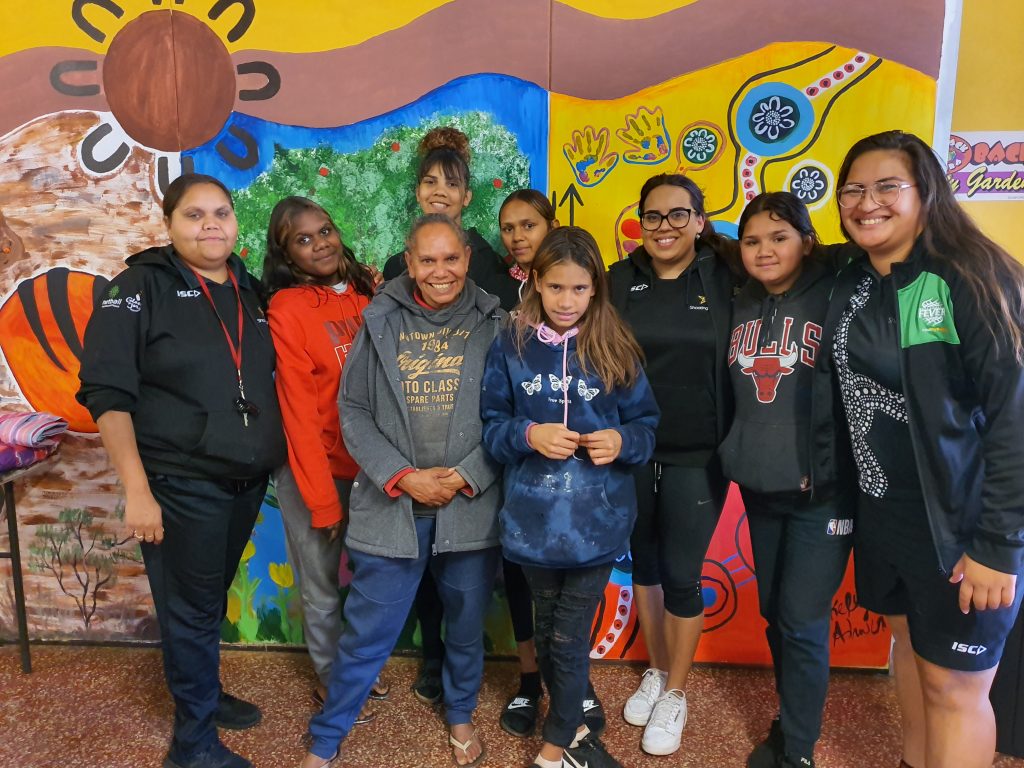
Shooting Stars (SS) is an initiative by Glass Jar Australia and Netball WA that is designed to increase school attendance for Aboriginal and Torres Strait Islander girls living in WA’s remote towns and communities. Through the SS initiative, activities to encourage exercise, positive health and wellbeing, leadership and cultural connection are nourished.
Using a $10,000 Strengthening Rural Communities (SRC) grant through the Small and Vital stream, two Shooting Stars Cultural Reward Camps were able to be funded. Twenty-five girls aged between 10-16 were invited to participate in two activity-based camps on Kija / Jaru Country. In order to participate the girls were required to demonstrate an 80% or above school attendance rate or show an improvement in attendance by 20% or more from the previous term. These requirements not only increase participation at school but also help the girls to feel they have worked hard for the achievement.
The grant, which was generously funded by the Karpikarnpi Community Fund, allowed camping equipment and food, recording equipment for the yarning circle and the transport of two Shooting Star Program facilitators: the Sparks Coordinator and Pathways Coordinator.
During the two camping days seven activities took place which included traditional jewellery making, damper made three ways, a yarning circle for the girls to discuss successes and challenges over the term, a basket weaving session, an art mural class, a healthy eating and nutrition workshop and a wellbeing session with the Shooting Star Program Facilitators.
Due to the COVID-19 pandemic, changes were made to the original plan. However, the Shooting Stars initiative was able to adapt to hold an engaging and positive camp for the girls who all responded positively to the camp.
